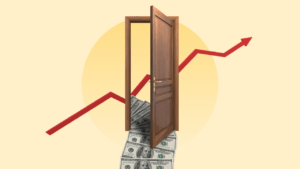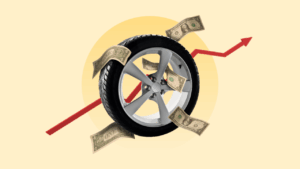Personal loan interest rate forecast for 2026: Average APRs may hover near 12% amid continued economic uncertainty

If you’re considering borrowing a personal loan in 2026, you may be in for some underwhelming — and perhaps unsurprising — news. Personal loan interest rates are likely to remain elevated.
That’s the educated estimate from Ted Rossman, Bankrate senior industry analyst. Consider this a continuation of the trajectory of personal loan rates, which have steadily increased since the COVID-19 pandemic. And today’s level of economic uncertainty means lenders may not have the appetite to start bringing them back down.
A lot of personal loan demand does skew a bit lower-credit quality and lower-income, so it's also a function of, are lenders really willing to lend to that audience? Do they feel like the economy and the job market are in a good enough spot? Personal loans have been a little more status quo, whereas other loans have more closely followed the Fed.— Ted Rossman, Bankrate senior industry analyst
Bankrate’s personal loan 2026 forecast and industry insights
- Projected 2026 average: 12% (0.22 percentage point decrease from where rates ended in Dec. 2025)
- Projected 2026 low: 11.8% (Lowest level since Dec. 2023)
- Projected 2026 high: 12.2% (Same level as Dec. 2025)
If Bankrate’s personal loan rate forecast looks like more of the same — and what we’ve grown accustomed to — you’re not wrong. It has been more expensive for borrowers to access the most versatile of consumer lending products over the last several years.
Rossman projects an average personal loan rate of 12% for 2026 — that’s the APR to expect if you have a 700 FICO credit score and are borrowing $5,000 on a three-year repayment term. On the bright side, Rossman’s projected low for 2026 (11.8%) would represent the lowest average personal loan rate we’ve seen since the end of 2023, though that’s still much higher than the average rates we saw at the end of 2021 (10.27%).
In terms of loan payments, a drop from Dec. 2025’s 12.21% to the forecasted average 12% rate won’t make much of a difference. On a three-year, $5,000 personal loan, you’ll save only 50 cents per month, or $12 in total interest. As rates remain elevated, rate shopping and comparing lenders are more important than ever.
Elevated rates can make it costlier to borrow if you’re hoping to consolidate high-interest credit card debt in 2026. And if you’re eyeing a major home renovation, elevated personal loan APRs could make home equity financing products more appealing by comparison. (After all, Americans are sitting on unprecedented amounts of home equity.)
Bankrate has been tracking unsecured personal loan rates since 1998, and yet, our latest forecast is just that, a forecast. Rossman says he’s expecting three quarter-point rate cuts by the Federal Reserve in the next calendar year. Any more or any less — potentially depending on the Fed’s efforts to keep inflation in check and the job market moving — and personal loan lenders could adjust their own target APRs.
The bigger story: Even if the Fed keeps easing its target, personal loan pricing is heavily driven by lenders’ comfort with consumer credit risk, not just the federal funds rate.
In the second quarter of 2025, loan originations were up 26% compared to the year prior, reaching an all-time high of 6.9 million new loans, according to TransUnion. Fintech lenders grew their market share from 43% to 53% over the same period.
What happened to personal loan interest rates in 2025?
The last vintage of our personal loan interest rate forecast was similarly subdued. After rates finished December 2024 at 12.29%, Bankrate estimated slightly lower rates in 2025, particularly for well-qualified borrowers.
In fact, the average rate remained above 12% for the entire year. It reached its peak (12.64%) in June and found its floor (12.21%) by December, never swinging wildly.
“Personal loans are interesting because those [rates] really didn’t change that much at all this year,” says Rossman of 2025. “They finished the year right where they started; there was a bit of a mid-year rise and then a fall back down. So, that seems a little bit less directly tied to the Fed.”
What consumers need to know about personal loan interest rates in 2026
Remember that the average personal loan rate isn’t necessarily the rate you’ll be quoted if you apply for funding in 2026. And that’s Rossman’s message: Don’t settle.
“You can do a lot better than average if you shop around, if you have good credit, if you have sufficient income,” says Rossman. “I realize those are difficult boxes for some people to check… [but] don’t settle for average. You could probably beat the national average by five percentage points if you have some of the right credentials.”
Taking the time to improve your credit and boost your income — yes, easier said than done — can help you get the most competitive APR possible.
And the savings from a lower personal loan rate may be significant. For example, consider a $6,800 loan, the average according to mid-2025 TransUnion data, repaid over three years.
| Loan 1 | Loan 2 | Loan 3 | |
| APR | 10% | 12% | 17% |
| Monthly payment | $219 | $226 | $242 |
| Total interest | $1,099 | $1,331 | $1,928 |
| Total loan cost | $7,899 | $8,131 | $8,728 |
Comparing both lenders and rates is critical to securing the best personal loan rate possible. Online lenders may specialize in subprime lending, but banks and credit unions compete, too.
“There has been a huge rise in fintech personal loan lending in recent years, and a lot of those rates are really attractive — you see some in the 6, 7, 8% range,” says Rossman. “Those are actually quite attractive rates when you think about consolidating credit card debt that might be 20 or 25%.”
So, while the average personal loan rate seems unlikely to meaningfully descend anytime soon, the rate you can secure from lenders can absolutely decrease. Yes, the uncertainty of 2026 — including stubbornly high prices and belt-tightening employers — can make it more difficult. But you can make the best of a less-than-ideal situation.
Why we ask for feedback Your feedback helps us improve our content and services. It takes less than a minute to complete.
Your responses are anonymous and will only be used for improving our website.









